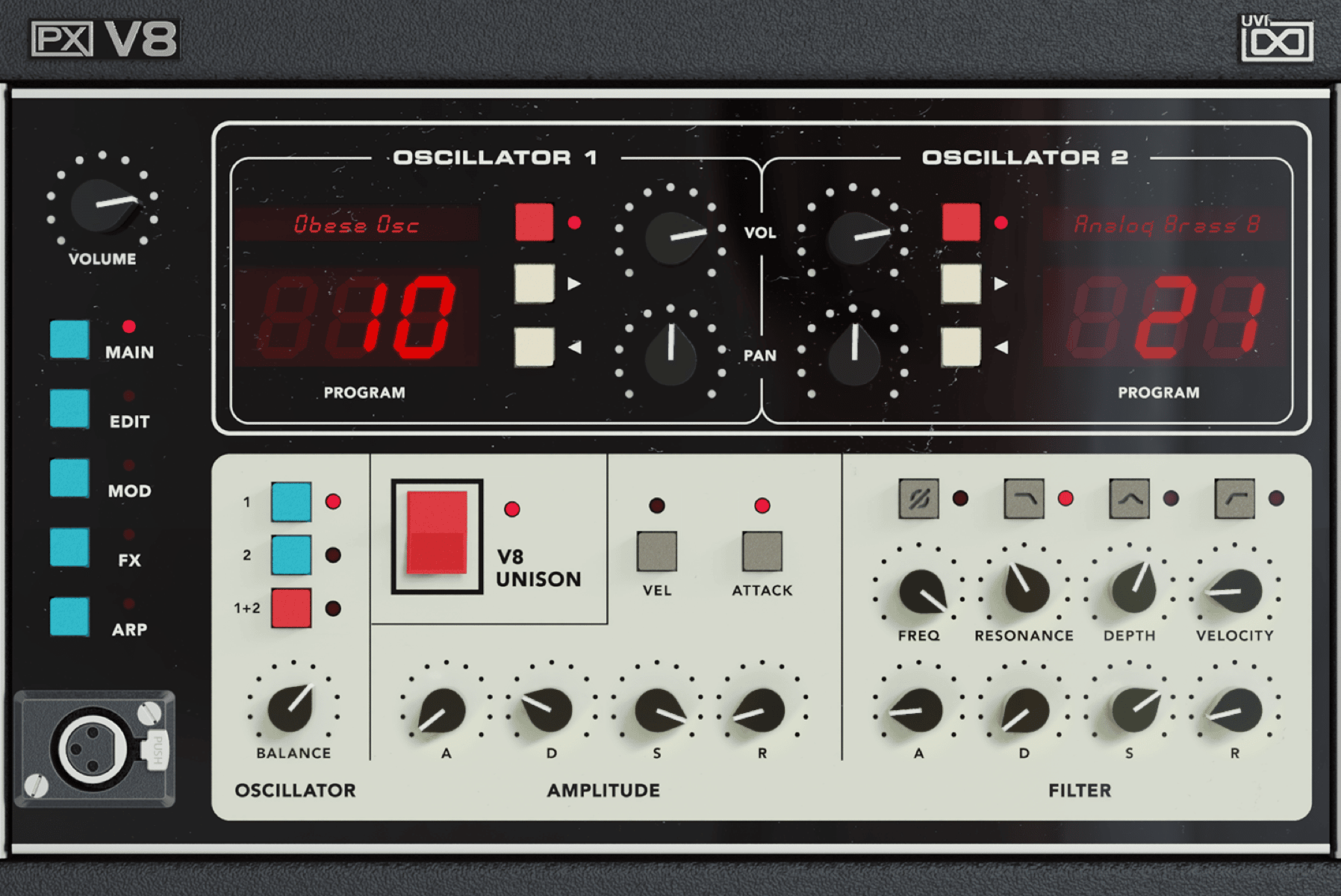
PX V8 is based on an exceedingly uncommon American polyphonic analogue synthesizer, the Voyetra Eight. Released by Octave-Plateau Electronics in the 80s, this modest 3-space rackmount synth is an analogue powerhouse wearing 8 voice cards and an inconceivably profound tweak system. With 6 pages of parameters to customize the Voyetra Eight was nothing in the event that not adaptable, but within the conclusion, it’s the sound that tallies and it does not disillusion. Much appreciated for unobtrusive contrasts in each of the voice cards and an effective harmony mode, the Voyetra Eight conveys a brilliantly uncompromising analogue sound with wealthy, capable leads, thick basses, warm, tweaking pads, strings and more.
A one of a kind instrument with a sound more prominent than the entirety of its parts, the Voyetra Eight packs a gigantic analogue punch into a little outline that until presently has generally been misplaced to time. PX V8 has been an enthusiastic venture, it took UVI 2 years to track down a Voyetra Eight, and even at that point, it required critical work to reestablish it to production line conditions. UVI sound designers went through over 6 months making sounds with the Voyetra for PX V8; learning the structure of the instrument, planning patches, investigating conceivable outcomes, recording and altering. They tried various arrangements of cables and converters to guarantee you’d encounter the most noteworthy quality sound sometime recently settling on Vovox and Crystal, the results are clear.
PX V8’s sampling was made per-key for each fix they outlined, both with and without harmony mode-locked in permitting you to empower honest to goodness equipment harmony on any sound within the library. A bit like on the Voyetra Eight you’ll stack two layers at once, and with the harmony mode-locked in you’ll make genuinely gigantic analogue sounds without stressing approximately an 8 voice ceiling.
Image: UVI
